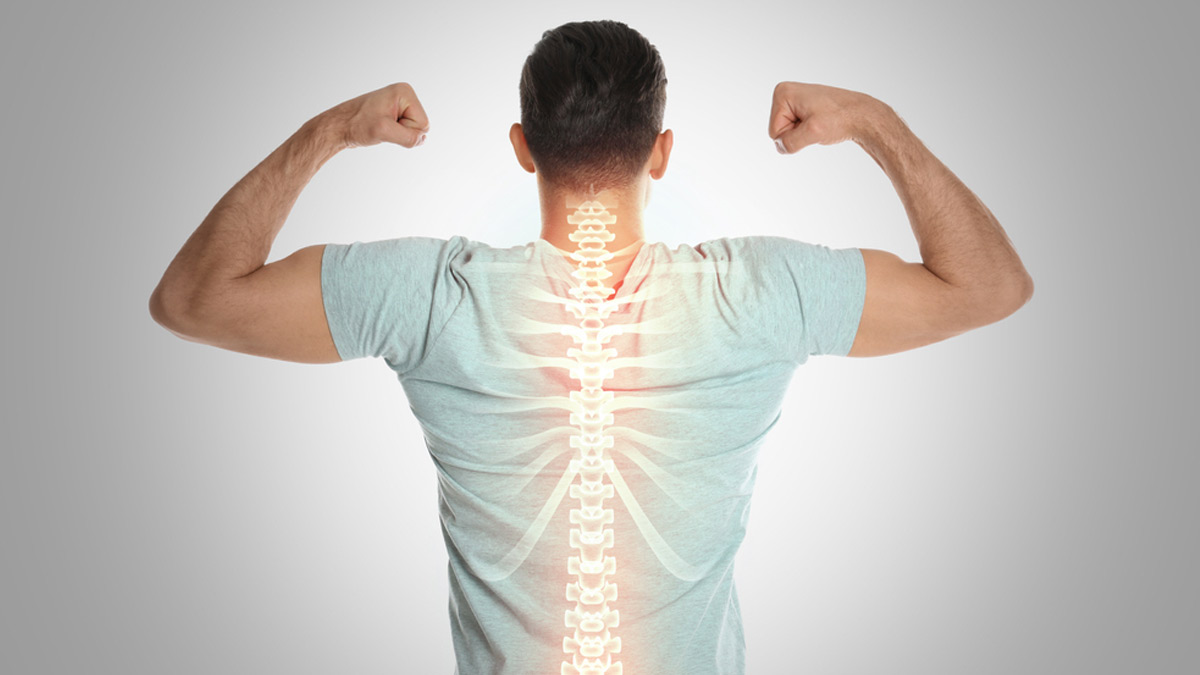
In your pursuit to build your bone strength, you must have come across remedies like eating bananas, drinking milk, and consuming various other sources of calcium. However, could you have imagined that low testosterone was the culprit? This theory is supported by a study published in the Journal of Clinical Medicine, which stated, “Bone fracture due to osteoporosis is an important issue in decreasing the quality of life for elderly men in the current ageing society. Testosterone has an important role in maintaining bone mineral density among men. Various clinical symptoms and signs associated with testosterone decline, including decreased BMD, are known to occur in elderly men”
The Role of Testosterone in Bone Health

Stating that testosterone is a vital hormone for bone and muscular health, Dr Kunal Kanti Pal, Consultant, Orthopedics & Joint Replacement Department, CMRI Kolkata, informed the team of OnlyMyHealth, “The primary cause of osteoporosis in men is a lack of testosterone. Osteoporosis occurs when your body breaks down bone tissue more quickly than it builds it up. In men, bone mineral density is closely related to testosterone levels.”
As supportive evidence of the connection between testosterone and bone health, he added, “Osteoporosis worsens over time. If left untreated, it can cause brittle bones and an increased risk of fracture. This is directly proportional to the falling level of the male hormone with age. After the age of 30, testosterone levels drop by roughly 1% per year. Moreover, osteoporosis is a typical adverse effect of androgen restriction therapy for prostate cancer in males. In the first year after therapy, bone mineral density typically decreases by 2% to 8%.”
Also Read: Low Testosterone: Symptoms, Causes, Treatment
Dr Pal elucidated that it is important to be aware of these symptoms of low testosterone, as these symptoms can inform you that you are at a higher risk of developing weak bones:
- Fatigue
- Abdominal weight gain
- Difficulty concentrating
- Low libido
- Depression
- Loss of muscle mass
- Erectile dysfunction
- Muscle weakness
Maintaining Healthy Testosterone Levels

If you want stronger bones, then you have to employ practices that build your testosterone levels as well. To help you on your journey towards tough bones and better health, Dr Pal listed lifestyle choices for better hormonal performance:
- Avoid abusing narcotic substances, smoking and alcohol. Do not have more than two alcoholic beverages each day if you are a man.
- Walking, jogging, and climbing stairs are all advisable workouts that can help to grow strong bones and gradually decline bone loss.
- Consume a highly enriched diet with vitamin D and calcium daily.
- Weight-bearing exercises and resistance training can help stimulate the production of testosterone.
- Quality sleep is essential for hormone regulation, including testosterone.
- Chronic stress can negatively impact hormone levels, so effective stress management techniques are essential.
- If you suffer from hypogonadism, testosterone replacement therapy can help restore testosterone levels to normal levels.
Also Read: 5 Natural Testosterone Supplements For Men
Dr Pal also warned that testosterone levels could be fluctuating due to a serious underlying medical issue. Hence consulting a certified medical expert is a must if you suspect you have weak bones and poor testosterone levels.
In conclusion, testosterone is not solely a hormone responsible for male characteristics; it plays a vital role in maintaining bone health in men. As individuals age, testosterone levels naturally decline. This decrease in testosterone can contribute to age-related bone loss. It's one of the reasons why older adults are more susceptible to fractures and osteoporosis. Interestingly, even women can be plagued with weak bones due to a low testosterone level, especially during menopause. By understanding this connection and taking steps to support healthy testosterone levels, you can reduce the risk of fractures and enjoy stronger, more resilient bones throughout your life.
Also watch this video
Read Next
Expert Talks About Erectile Dysfunction And Its Impact On The Mental And Physical Health Of Men
How we keep this article up to date:
We work with experts and keep a close eye on the latest in health and wellness. Whenever there is a new research or helpful information, we update our articles with accurate and useful advice.
Current Version